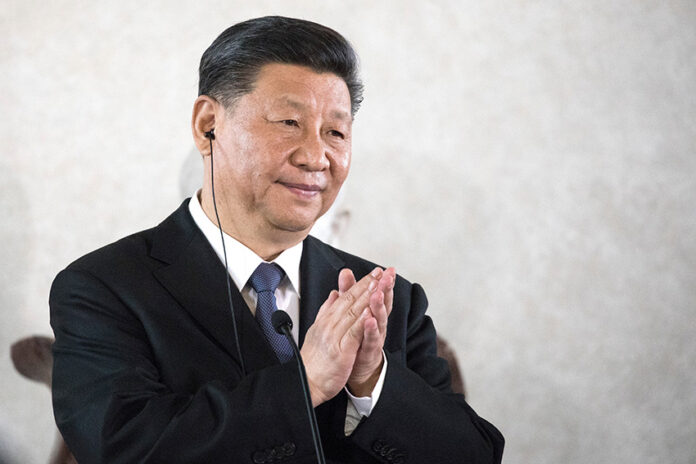This article has been selected as a finalist in the 2024 E-International Relations Article Award, supported by Edinburgh University Press, Polity, Sage, Bloomsbury and Routledge.
Xi Jinping’s vision of a Community of Shared Future for Mankind is shaping the future world order. China is seen as leading this process, making it crucial to understand China’s vision for world order for peace and development in the region. This article seeks to explore the philosophical foundation of Xi’s vision and compare it with China’s actions.
The Community of Shared Future for Mankind: The Message Behind the Title
Xi Jinping first mentioned 人类命运共同体 (renlei mingyun gongtongti) before an international audience in March 2013. The phrase was later translated as “Community of Shared Destiny for Mankind,” but in September 2015, it was revised to “Community of Shared Future for Mankind.” The change from “destiny” to “future” reflects Beijing’s desire to avoid connotations of inevitability and ambition. Understanding the original Chinese text is crucial to comprehend Beijing’s true intentions.
The term 命 (ming) conveys the idea of mandate, fate, and destiny, while 运 (yun) refers to cosmic cycles and good luck. Combining these words signifies a universal mandate and destiny for mankind.
Domestic and International Reception
The Community of Shared Future for Mankind (CSFM) is a key element of Xi Jinping Thought and has been recognized internationally. However, some countries have raised objections to the phrase due to its association with China and Xi Jinping’s global vision.
The Content of CSFM: Reading China’s Proposal and Actions
China’s Proposal and Actions document outlines the global challenges and proposes ideas for establishing global governance based on principles like openness, equality, and justice. It criticizes hegemonic behavior and advocates for democratizing international relations.
The Underpinning Political Thoughts
Xi Jinping’s political beliefs are influenced by Marxism and Chinese traditional thought. The concept of “Two Integrations” integrates Marxism into Chinese reality and culture, ensuring the success of the Communist Party in rejuvenating China.
Marxism
Marxist core concepts like Dialectical Materialism and Historical Inevitability shape China’s vision of a Community of Shared Future for Mankind. China’s Proposal and Actions highlight global crises caused by hegemonic behavior and propose an alternative system.
Traditional Chinese Thought
The concept of 大同 (datong, the great harmony) from Chinese traditional thought influences Xi’s vision of a global community. The idea of harmony and mutual progress in diversity is central to Chinese culture and history.
CSFM: Between Rhetoric and Reality
While China’s Proposal and Actions promote equality and mutual respect among civilizations, China’s behavior, especially in the South China Sea dispute, raises questions about its commitment to these principles. Beijing’s claims of historical superiority and reluctance to follow international law undermine the spirit of equality espoused in the CSFM.
Ultimately, the realization of the Community of Shared Future for Mankind depends on China’s consistency with its rhetoric and actions. Only through aligning its behavior with its proposed ideals can China gain wider acceptance for its vision of a new world order.




